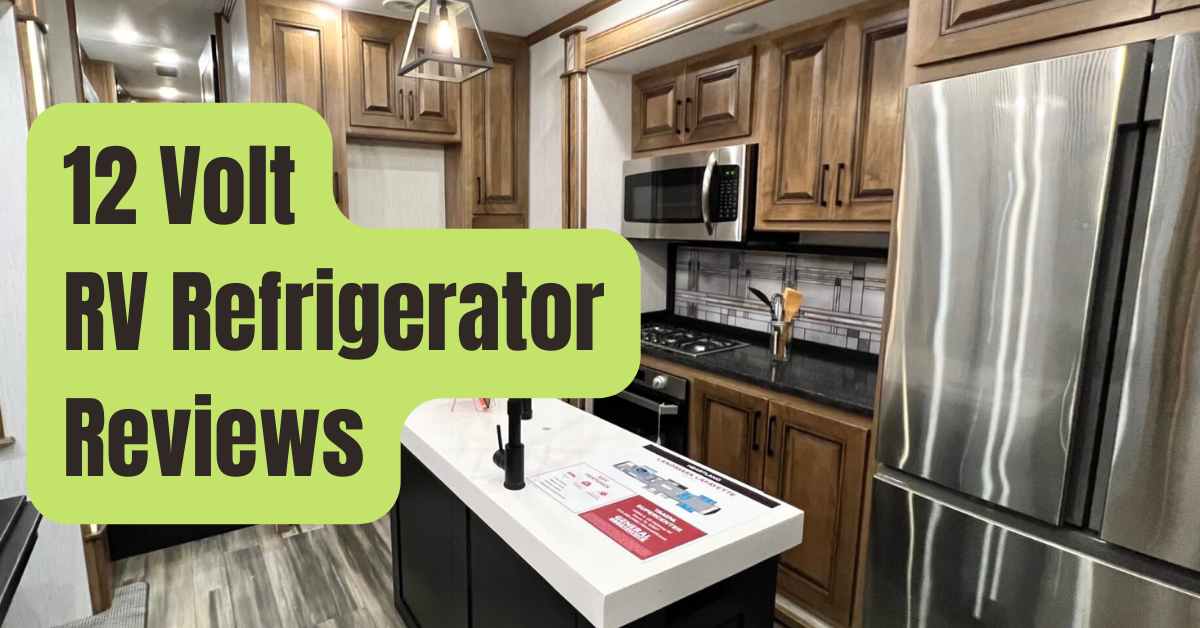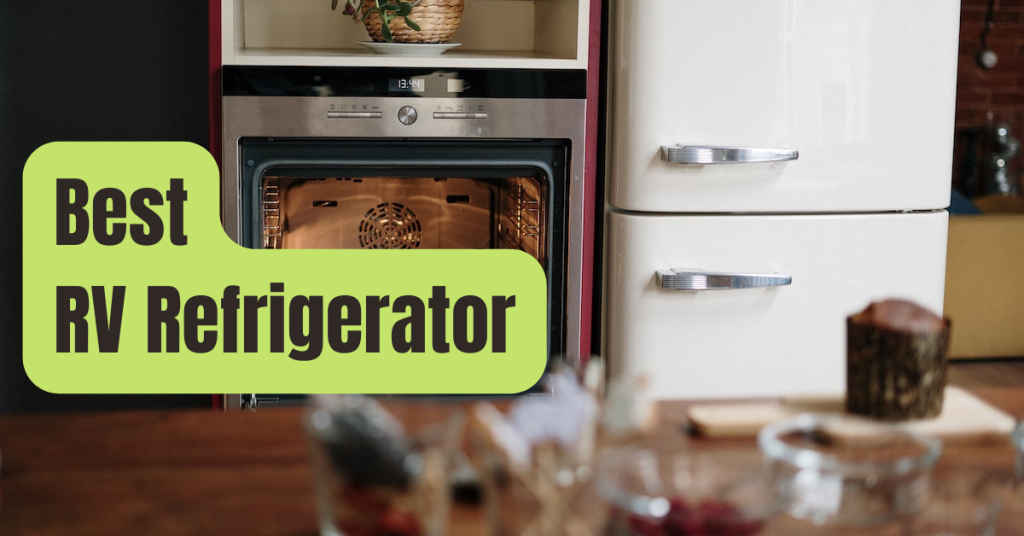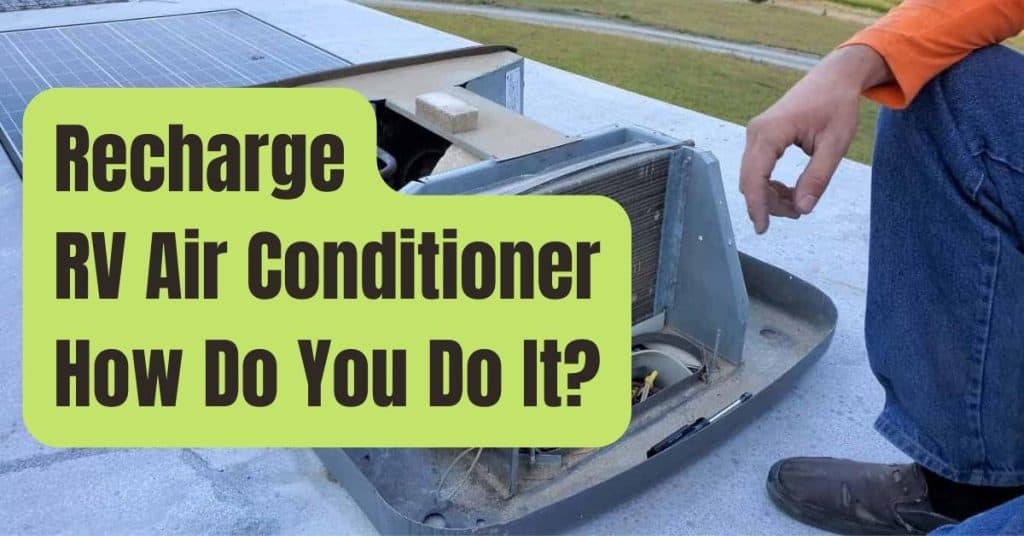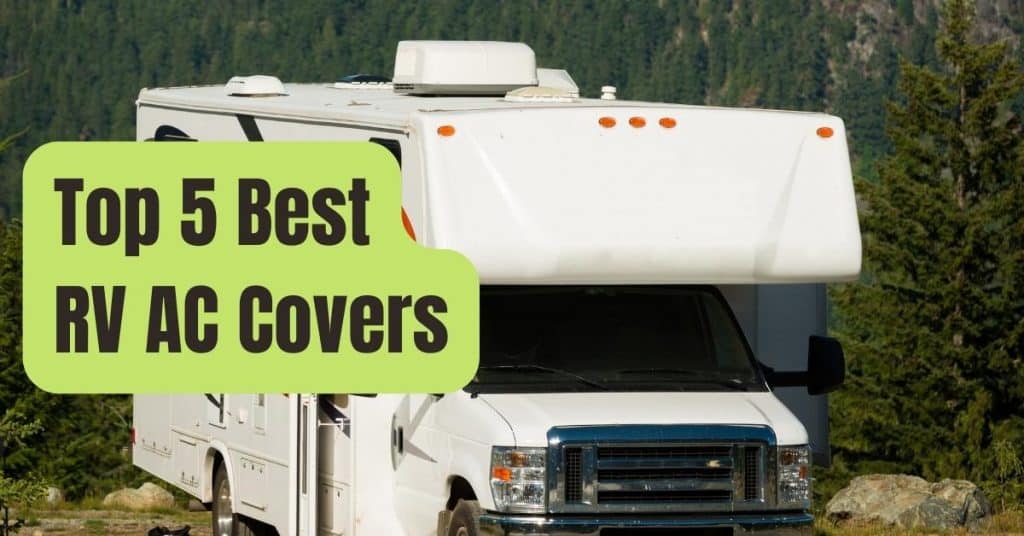Having a restroom and access to fresh food and cool beverages at all times are two of our favorite benefits of RV travel.
A 12 volt RV refrigerator might still provide this advantage even if it may not be the most popular choice.
Likewise, keep your ice cream frozen firm!
Join us as we examine this awesome option for the kitchen in your trailer.
A 12 Volt RV Refrigerator: What Is It?
The house batteries in your RV (or even the starting battery in your vehicle or truck) provide the majority of the 12-volt DC power needed to operate a 12-volt RV refrigerator.
Unlike absorption or two-way RV refrigerators, which may burn gas to fuel their cooling system, these refrigerators only run on electricity.
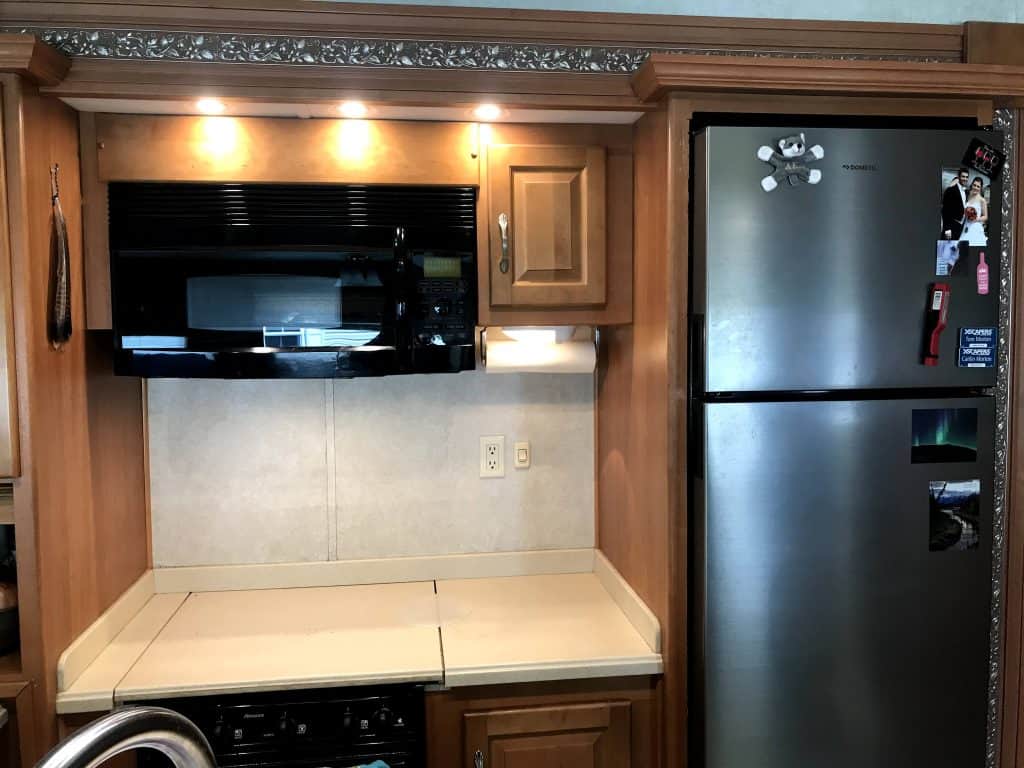
The Function of a 12 Volt RV Fridge
The sophisticated propane-based cooling technology utilized by absorption-style RV fridges is not employed by these refrigerators; instead, they cool using a more conventional compressor and condenser system.
They utilise the 12V electrical system in your setup since they are 12V devices.
Some types may also be powered directly by your vehicle or truck’s cigarette lighter.
These refrigerators will still run on 12V DC if you are hooked into shore power, but they will be powered by a converter or battery charger.
These 12 volt RV refrigerators use a refrigerant that has previously been compressed to chill your stuff.
A series of fins allows the pressurized refrigerant to cool after being heated and condensing into a liquid.
After passing through a tiny office, the liquid vaporizes once again to become a gas.
The refrigerant becomes quite cold during this vaporization process.
This gas absorbs the heat from your refrigerator’s inside, bringing it down to the right temperature.
The cycle is then restarted with the freshly warmed refrigerant traveling back to the compressor.
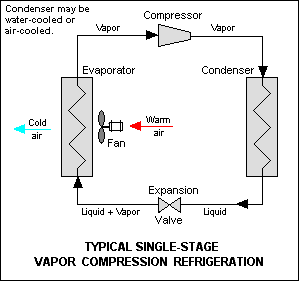
Advantages Of A 12 Volt Rv Refrigerator
For individuals who now use a propane or home fridge, a 12 volt RV fridge type has several notable advantages.
Let’s look at it.
#1. Portable
Because it may be powered by batteries, your 12 volt RV refrigerator will typically function anywhere you need it.
Only 12V electric power is required.
For individuals who are always on the move, this is a major benefit.
More transportable than a propane RV refrigerator unit are even bigger ones that resemble conventional refrigerators.
Without rerouting the propane system, they may be relocated about your rig or taken out entirely.

#2. Consistent Cooling
A 12-volt model often allows you to sleep a bit better knowing that your food is cold and secure.
Many of these refrigerators include freezers that run at temperatures far below zero and keep the refrigerator at a secure 40 degrees Fahrenheit.
Your ice cream will thus continue to be firm.
Many of them include active ventilation in the fridge to better spread the chill since they work on the same concept as a household refrigerator.
In essence, they can function just as effectively as your home refrigerator; they only use 12V instead of 120V AC.
Regardless of the ambient temperature, a 12 volt RV refrigerator may still chill effectively.
RV refrigerators, on the other hand, use absorption to chill.
Absorption-style RV refrigerators are partly reliant on the surrounding temperature and discard their heat outside.
The fridge could warm up if it’s too heated.
It could not work correctly if it’s too chilly either.
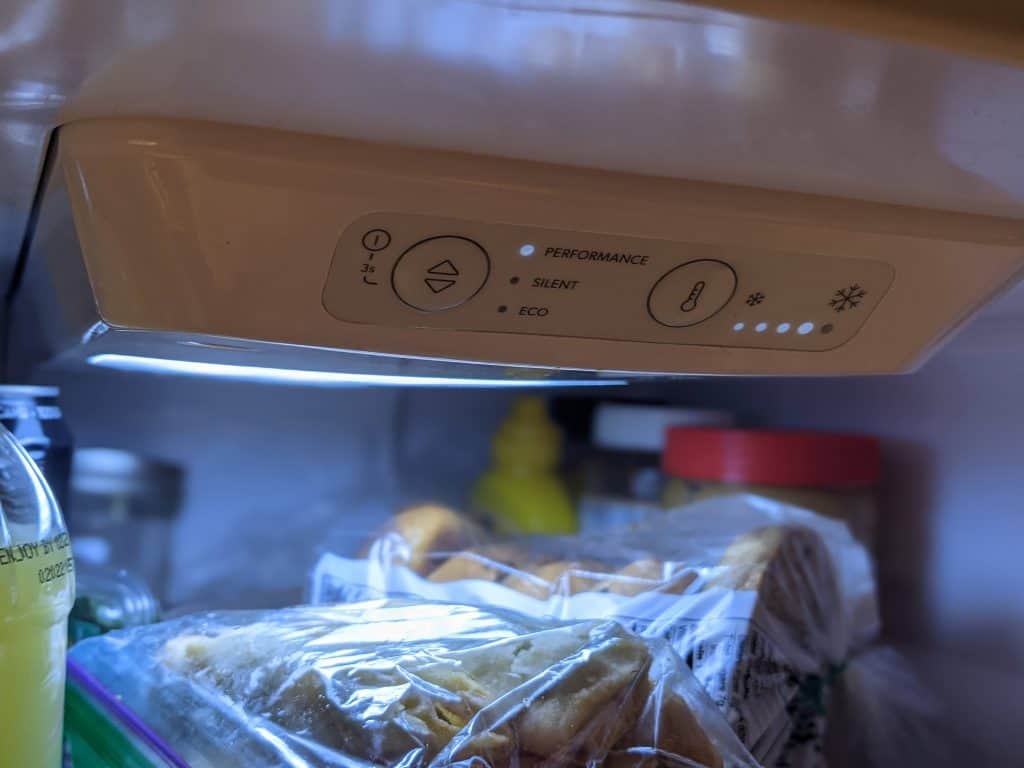
Additionally, if you are not parked on a totally flat surface, propane-powered refrigerators may stop working.
The same problems don’t exist with 12-volt refrigerators.
Additionally, even if you accidentally run out of propane, you’ll never have to worry about your food going bad.
Since many of your lights and outlets share the same power as your 12-volt fridge, you’ll be aware of power problems right away.
#3. More Room
In fact, a lot of 12V RV refrigerators have larger interiors than their propane-absorbing counterparts.
This is so that more space may be utilized for storage as the cooling unit takes up less room.
#4. Defrost On Auto
Similar to home refrigerators, the majority of 12V DC rv refrigerators use active cooling.
They may now include auto defrost into the freezer and refrigerator.
For full-time RVers who are familiar with the inconvenience of needing to defrost the fridge every few months, this is a significant advantage.
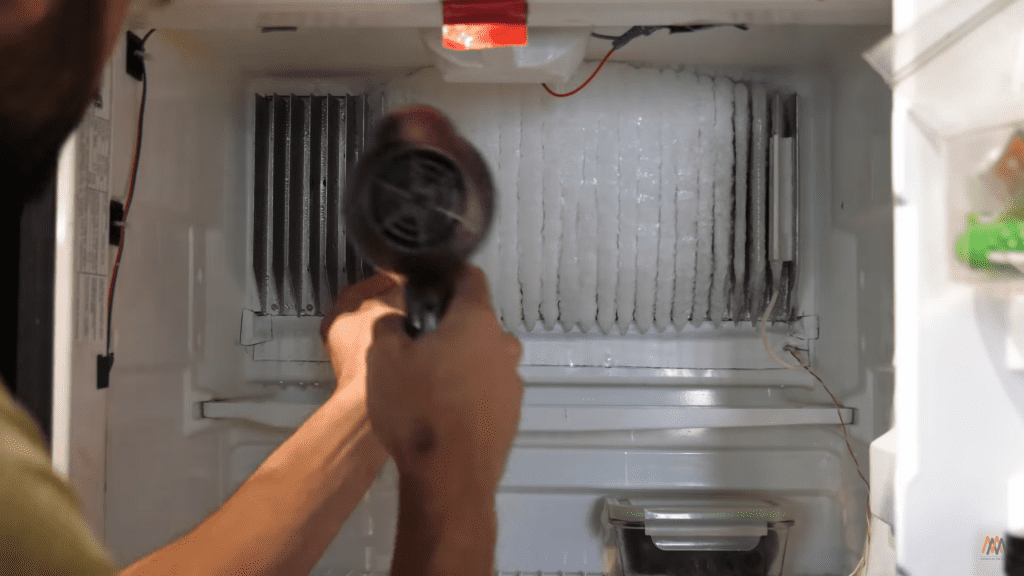
#5. High Efficiency and Solar Power Capable
A 12V type generally performs roughly eight times more effectively than a propane absorption fridge using electric shore power.
You would also need an inverter, which would result in electrical losses, if you were to power a domestic refrigerator from batteries.
The 12V RV refrigerator is the most energy-efficient kind of electrical fridge for an RV since no converter is required to operate it using solar power.
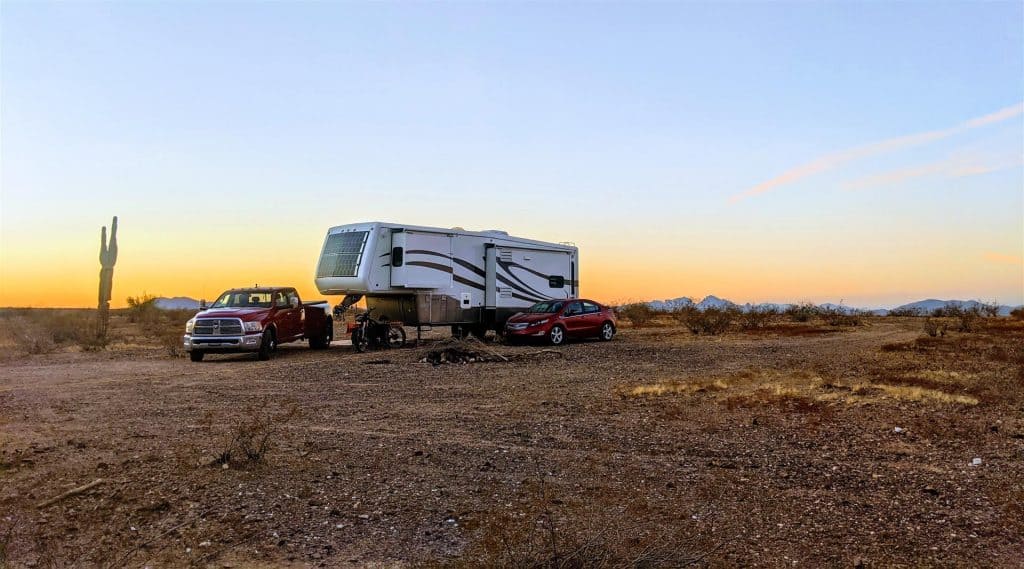
Cons
The decision to use a 12-volt fridge has certain disadvantages, just like many other RV equipment options.
Some RVers find them unappealing since they may be pricey and tiny.
#1. 12 Volt Power Supply
Its primary advantage, the 12V power supply, might also be its primary disadvantage.
On the battery power in your RV, the fridge will function properly.
When off the grid for a long time, you will need an extra power source to keep the fridge running.
Your fridge will stop working if your RV batteries expire.
A battery-powered refrigerator may only last a few days, whereas a propane-powered refrigerator may last for many weeks.
#2. Expensive
Unfortunately, a 12 volt fridge’s performance and adaptability come at a price.
This is particularly true when you take into account the cost in relation to the necessary storage space.
Although you’ll ultimately spend less on propane, you’ll have to pay more up front to get the 12-volt type.
Additionally, many owners may want to think about updating their 12V electrical system and potentially adding lithium batteries, which are more expensive up front.
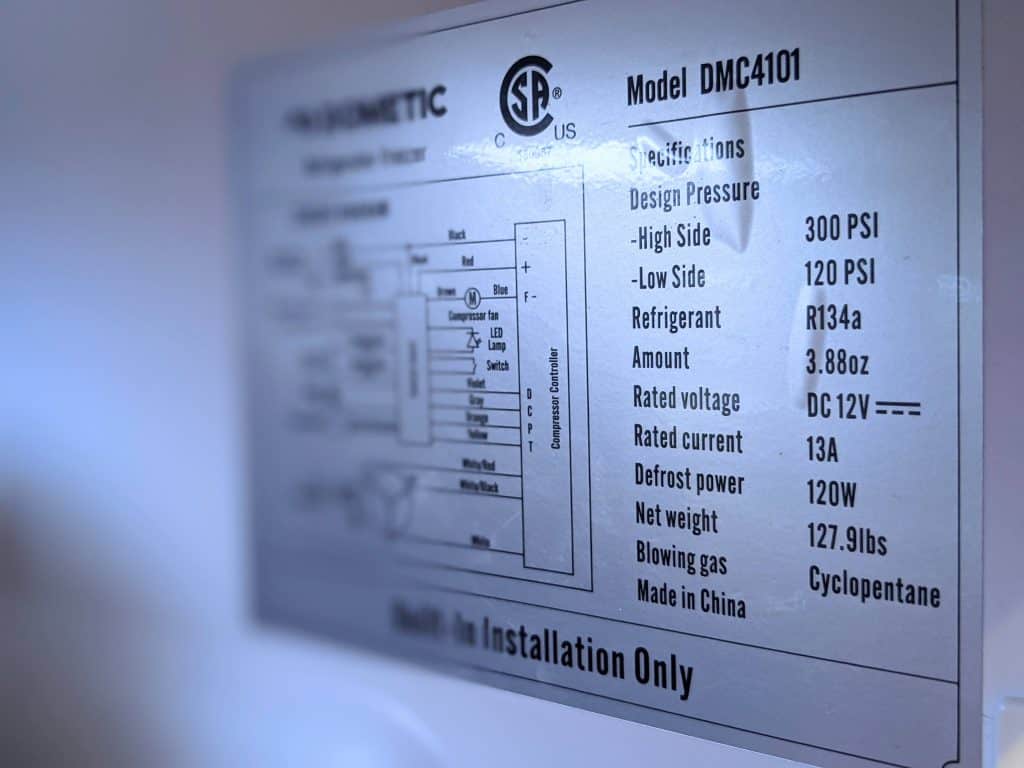
A 12 Volt RV Refrigerator: Ventilation Necessary?
Nope.
Your 12 volt RV refrigerator won’t need special ventilation to function, unlike two-way refrigerators that cool with propane.
This gives you a wide range of alternatives for where and how to place your refrigerator.
12 Volt Refrigerator Types
Since most 12V refrigerators are designed to work in moving cars, you usually find them in smaller sizes.
These refrigerators generally fall into one of two design categories.
#1. Chest or Drawer Style
One of the most popular refrigerator models resembles an electric cooler in form.
These work just like a regular refrigerator and maintain themselves cold when plugged in.
These are typically put on slide-out trays and are useful for many applications that need confined spaces.
They may just have one cooling compartment, while other times they feature a fridge and a freezer in the same area.
In our RV, we individually utilize one of them as additional freezer capacity.
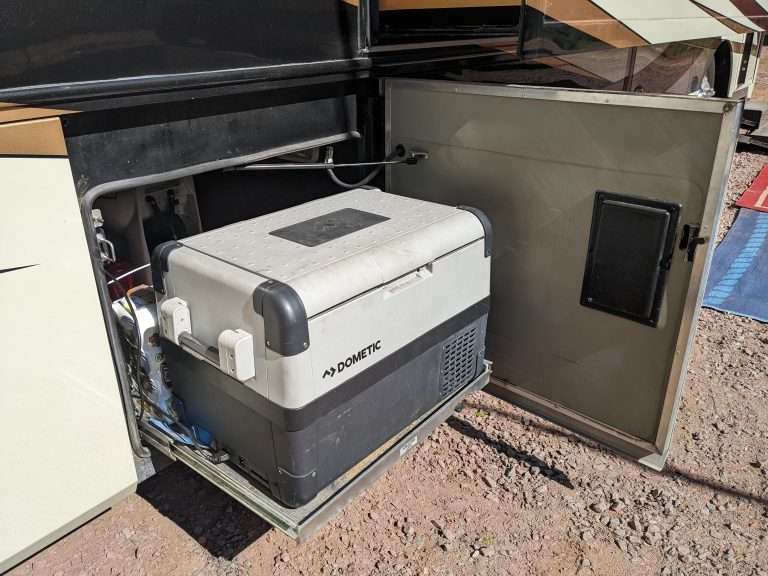
If you are power cautious, this kind is a smart choice since it opens with less loss of cool.
When compared to an upright fridge, it uses less electricity and leaks less chilly air when it is opened.
#2. Standing or Built-In
Because they are so convenient, upright refrigerators are the most common in households.
Items that are stored on shelves are accessible and don’t become buried.
Upright 12V fridges have gained increasing acceptance since they provide a more cozy environment.
However, compared to their chest cousin, upright DC fridges still have fewer alternatives.
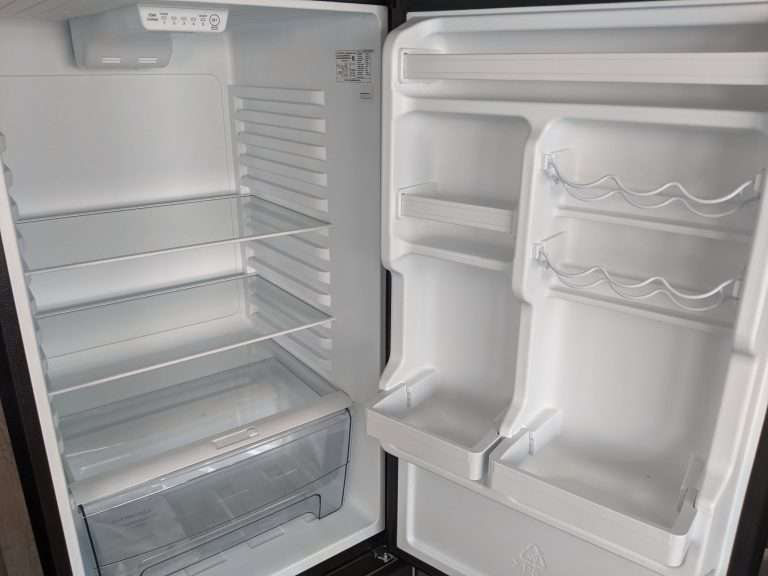
Do 12 Volt RV Fridges Make Sense?
A 12-volt RV fridge’s value to you will depend on your vehicle and camping habits.
Regular campers in hot climates will appreciate the additional cooling power compared to two-way fridges.
Off-grid boondocking fans with solar electric systems will like using the sun to power their refrigerators and not having to worry about leveling.
The absence of a propane connection and ventilation requirements will also have some substantial advantages for people who wish to be creative with the arrangement of their rig.
However, they may not be the ideal choice for RVers on a tight budget or those who need to store a lot of food.
Additionally, those with smaller batteries may notice that they deplete more rapidly.
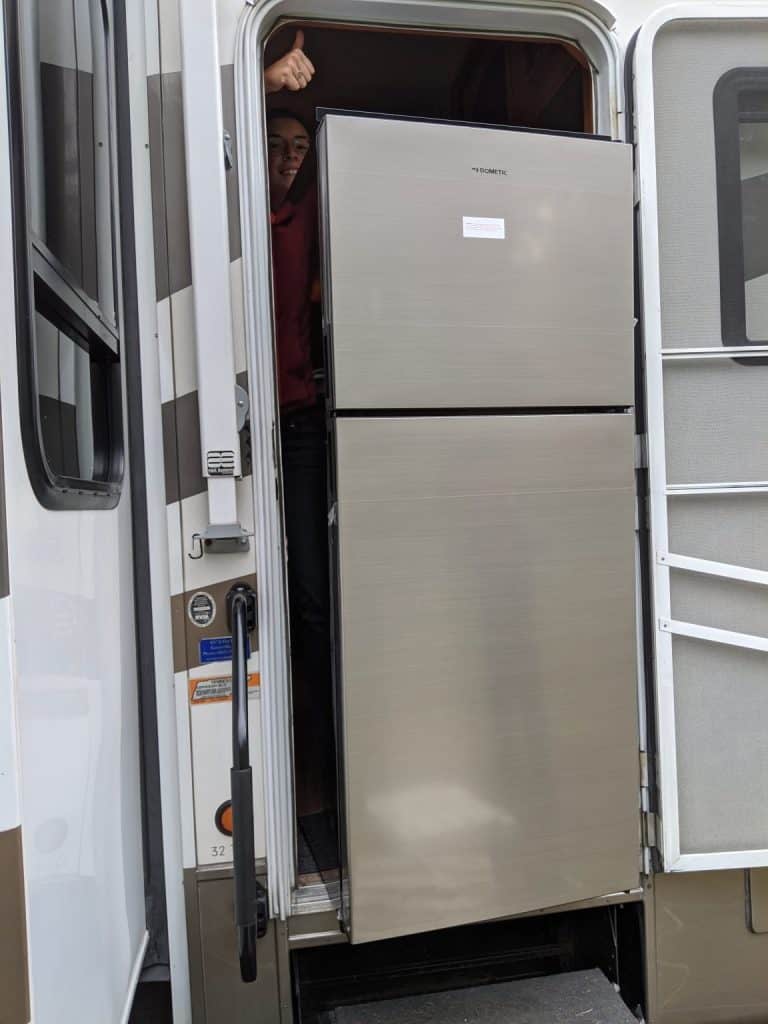
Our RV 12V Fridge Travels
We first tried converting our 2005 Dometic absorption fridge to a 12V compressor type when it began to feel dated.
To do this, we replaced the cooling unit with a JC Refrigeration model.
It took quite a bit of effort to complete this DIY project, but it did last for many years.
View the video of our six-month update here.
It was time for another replacement, however, since the original fridge’s vacuum panels had started to deteriorate.
In the summer of 2020, we lastly fitted a Dometic 12V DMC4101 refrigerator.
This refrigerator has done an excellent job at keeping our food cool and using less electricity.
The Dometic 12V fridge feels and functions like a home fridge, despite the fact that our initial conversion was successful.
For more than a year, it has only used solar energy, and we have been delighted with it.
Which Refrigerator Will You Buy Next?
Some people may not be able to use these 12 volt RV refrigerators.
However, while thinking about your future fridge, they’re a crucial choice to be aware of.
Their mobility, dependability, smaller size, and greater cost combine to provide a unique set of benefits and disadvantages.
You must ultimately balance the advantages and downsides based on your individual circumstances.
How do you feel? In the comments section below, let us know whether you’d replace your absorption RV fridge with a 12V one.

